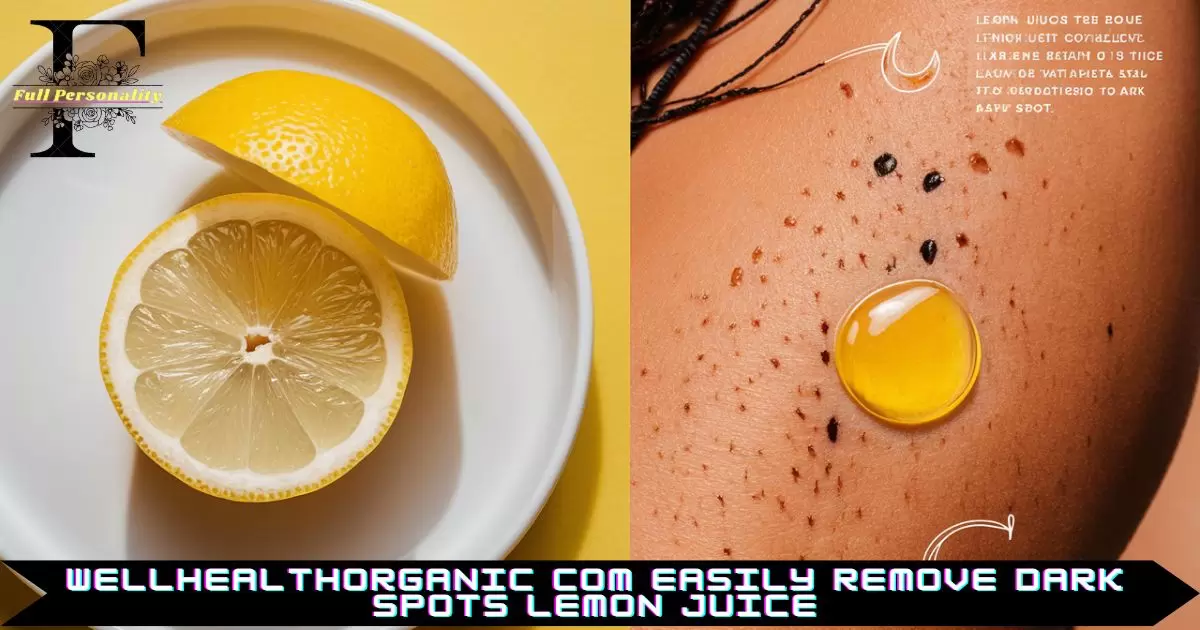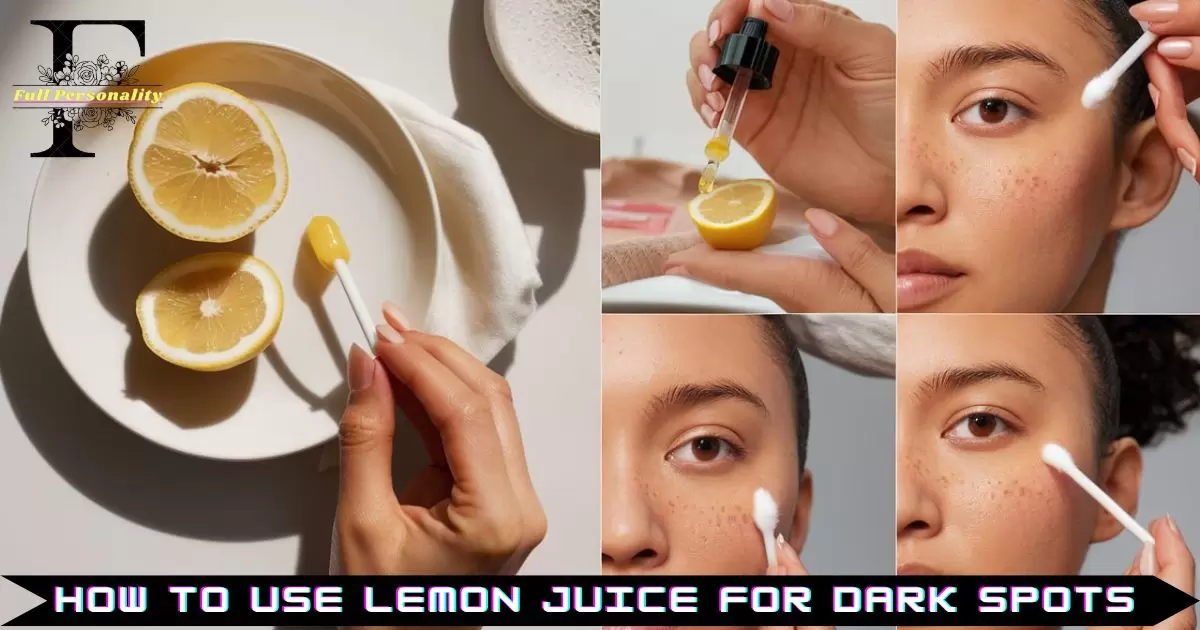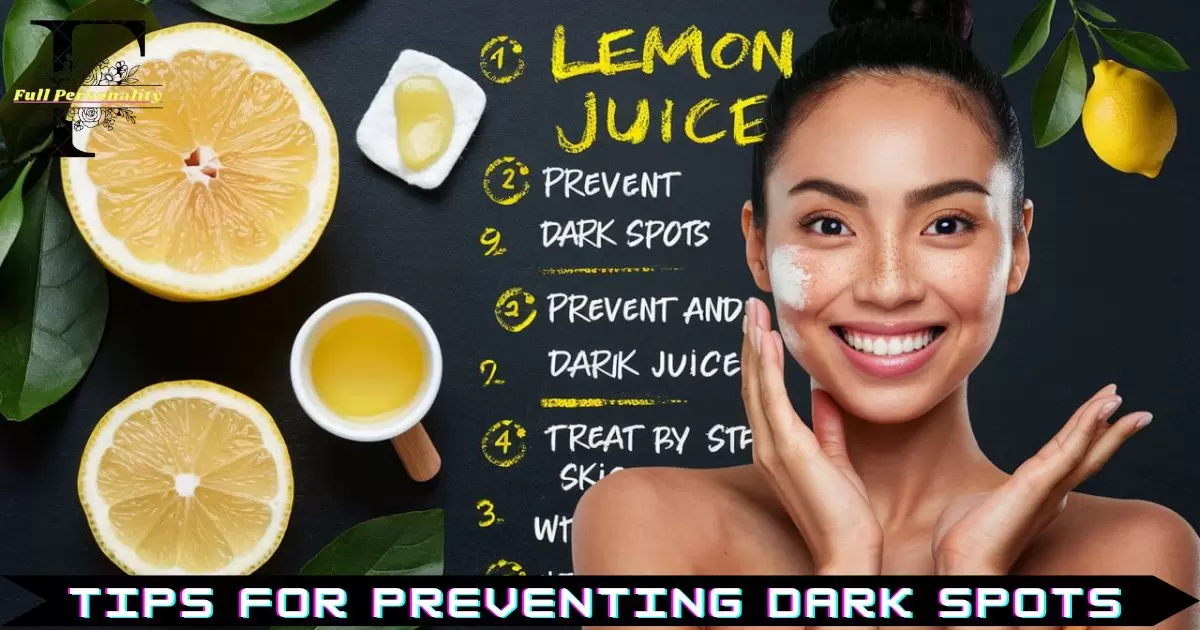Dark spots, also known as hyperpigmentation, are areas of skin that appear darker than the surrounding skin tone. They can be caused by a variety of factors, including sun damage, acne, injury, and hormonal changes. While they are generally harmless, dark spots can be a cosmetic concern for many people.
Dark spots are a common skin condition that affects people of all ages and skin tones. They can be caused by a variety of factors, including sun damage, acne, injury, and hormonal changes. While they are generally harmless, dark spots can be a cosmetic concern for many people.
Causes of Dark Spots
The sun is the most common culprit when it comes to dark spots. Overexposure to the sun’s harmful ultraviolet (UV) rays can damage the skin, leading to the production of excess melanin. Melanin is the pigment that gives skin its color, and when it is overproduced, it can cause dark spots.
You may want to Read: well health how to Build Muscle Tag: Simple Practical Guide
Acne can also lead to dark spots. When pimples and blemishes heal, they can sometimes leave behind dark marks. This is because inflammation can trigger the production of excess melanin.
Other factors that can contribute to the development of dark spots include:
- Hormonal changes: Pregnancy and menopause can cause hormonal fluctuations that lead to dark spots.
- Injury: Cuts, scrapes, and burns can sometimes result in dark spots.
- Medications: Certain medications can increase the sensitivity of the skin to sunlight, making it more likely to develop dark spots.
- Underlying medical conditions: Some medical conditions, such as polycystic ovary syndrome (PCOS) and Addison’s disease, can cause dark spots.
Types of Dark Spots
There are several different types of dark spots, each with its unique characteristics. Some of the most common types of dark spots include:
- Freckles: These are small, flat brown spots that are often present from childhood. They are caused by sun exposure and are more common in people with fair skin.
- Sunspots: These are larger, flat brown spots that develop as a result of sun damage. They are more common in people with older skin.
- Age spots: These are brown or black spots that develop on sun-exposed areas of the skin, such as the face, hands, and arms. They are caused by years of sun exposure and are more common in people over the age of 40.
- Melasma: This is a condition that causes brown or gray patches on the face. It is often triggered by hormonal changes, such as pregnancy or birth control pills.
- Post-inflammatory hyperpigmentation (PIH): This occurs when the skin produces excess melanin in response to inflammation, such as acne or a skin injury.
The Benefits of Lemon Juice for Skin
Lemon juice has been used for centuries as a natural skin care remedy. It is rich in vitamin C, an antioxidant that helps protect the skin from damage. Vitamin C also plays a role in collagen production, which helps to keep the skin firm and elastic.
You may want to Read: Fashion Step By Step
In addition to vitamin C, lemon juice also contains citric acid, which has exfoliating properties. This can help to remove dead skin cells and promote skin cell turnover.
Nutrients in Lemon Juice
Lemon juice is packed with essential nutrients that benefit the skin. Some of the key nutrients include:
- Vitamin C: A powerful antioxidant that protects the skin from damage and promotes collagen production.
- Citric acid: A natural alpha-hydroxy acid (AHA) that exfoliates the skin and helps to brighten the complexion.
- Folate: A B vitamin that helps to repair skin cells.
- Potassium: An electrolyte that helps to maintain skin hydration.
How Lemon Juice Helps Lighten Dark Spots
Lemon juice can help to lighten dark spots in several ways:
- Exfoliation: The citric acid in lemon juice helps to remove dead skin cells, revealing brighter skin underneath.
- Skin lightening: Vitamin C inhibits the production of melanin, the pigment that gives skin its color. This can help to lighten dark spots over time.
- Antioxidant protection: Vitamin C protects the skin from damage caused by free radicals, which can contribute to the development of dark spots.
How to Use Lemon Juice for Dark Spots
Lemon juice can be used in a variety of ways to lighten dark spots. Here are some tips:
Preparation and Application
- Fresh is best: Use freshly squeezed lemon juice for the best results.
- Dilute the juice: Lemon juice is acidic, so it’s important to dilute it with water before applying it to your skin.
- Patch test: Before applying lemon juice to your entire face, test it on a small area of skin to check for any allergic reactions.
You may want to Read: Showbizztoday.Com Entertainment Lifestyle Music Fashion
Frequency of Use
- Start slowly: Begin by using lemon juice once or twice a week and gradually increase the frequency as your skin tolerates it.
- Consistency is key: Regular use is essential for achieving visible results.
DIY Lemon Juice Treatments
There are many different DIY lemon juice treatments that you can try to lighten dark spots. Here are a few popular options:
Lemon Juice and Honey
Honey has antibacterial and moisturizing properties, making it a great complement to lemon juice. To use this treatment, mix equal parts lemon juice and honey and apply it to the affected areas. Leave it on for 15-20 minutes, then rinse with lukewarm water.
Lemon Juice and Aloe Vera
Aloe vera has soothing and healing properties, making it ideal for sensitive skin. To use this treatment, combine equal parts lemon juice and aloe vera gel and apply it to the affected areas. Leave it on for 15-20 minutes, then rinse with lukewarm water.
Lemon Juice and Yogurt
Yogurt contains lactic acid, which has exfoliating properties. To use this treatment, mix 2 tablespoons of yogurt with 1 tablespoon of lemon juice. Apply it to the affected areas and leave it on for 15-20 minutes, then rinse with lukewarm water.
Precautions When Using Lemon Juice
While lemon juice can be effective for lightening dark spots, it’s important to use it with caution. Lemon juice can be irritating to the skin, especially if you have sensitive skin. It’s also important to avoid exposing your skin to sunlight immediately after applying lemon juice, as this can increase the risk of sunburn.
Potential Side Effects
Some people may experience side effects when using lemon juice on their skin. These can include redness, itching, and dryness. If you notice any of these side effects, stop using the product and seek advice from a dermatologist.
How to Avoid Skin Irritation
To minimize the risk of skin irritation, it’s important to dilute lemon juice with water before applying it to your skin. You should also avoid using lemon juice on broken or inflamed skin.
Alternatives to Lemon Juice for Dark Spots
If you have sensitive skin or prefer not to use lemon juice, there are several other options available for lightening dark spots. These include:
Other Natural Remedies
- Vitamin E oil: This oil has antioxidant properties that can help to protect the skin from damage and improve skin tone.
- Aloe vera gel: Aloe vera has soothing and healing properties that can help to reduce inflammation and promote skin regeneration.
- Licorice extract: Licorice extract has skin-lightening properties and can help to reduce the appearance of dark spots.
Over-the-Counter Products
There are many over-the-counter products available that can help to lighten dark spots. These products often include components like hydroquinone, kojic acid, and azelaic acid. It’s important to choose a product that is right for your skin type and to follow the directions carefully.
You may want to Read: well health how to build muscle tag: Simple Practical Guide
Maintaining Results
Once you have achieved your desired results, it’s important to maintain them by protecting your skin from the sun. Use sunscreen with an SPF of 30 or higher every day, even on cloudy days. You should also avoid excessive sun exposure and wear protective clothing when spending time outdoors.
Tips for Preventing Dark Spots
The best way to prevent dark spots is to protect your skin from the sun. Here are some tips:
- Apply sunscreen with an SPF of at least 30 daily.
- When you’re outside, wear protective gear like hats and sunglasses.
- Avoid tanning beds and sunlamps.
- See a dermatologist for regular skin exams.
By following these tips, you can help prevent the development of dark spots and maintain a healthy, radiant complexion.
FAQs
Is lemon juice safe for all skin types?
Lemon juice can be quite strong for those with sensitive skin. It’s advisable to conduct a patch test first.
How long does it take to see results?
The time frame for noticeable improvements can vary, but typically, consistent use over a few weeks may show positive changes.
Can lemon juice be used daily?
Daily application of lemon juice is not advised as it may lead to skin irritation. Limiting use to 2-3 times a week is recommended.
What steps should I take if my skin has an adverse reaction?
If you experience any irritation, discontinue use immediately and apply a soothing moisturizer. If necessary, seek advice from a dermatologist.
Are there any lasting impacts from using lemon juice?
Prolonged use can result in heightened skin sensitivity and possible irritation. It’s best to use it in moderation.
Is it okay to substitute bottled lemon juice for fresh?
Fresh lemon juice is recommended due to its higher nutrient content and absence of preservatives.
How do I store leftover lemon juice?
Keep leftover lemon juice in an airtight container in the refrigerator, which will remain fresh for up to a week.
Is lemon juice effective for all types of dark spots?
Lemon juice can assist in lightening various types of dark spots, though its effectiveness can depend on the cause and severity of the spots.
Can I mix lemon juice with other skincare products?
Combining lemon juice with other natural ingredients is possible, but caution should be exercised when mixing it with commercial skincare products.
How do I protect my skin after using lemon juice?
Always apply sunscreen after using lemon juice to shield your skin from UV damage.
Conclusion
Incorporating lemon juice into your skincare routine can be a game-changer for tackling dark spots. Its natural bleaching properties and essential nutrients make it a potent remedy for a brighter, more even complexion. However, using lemon juice carefully is crucial, respecting its potency and potential for irritation.
Remember to start with a patch test and follow the recommended usage guidelines. Complement your lemon juice treatments with diligent sun protection and a consistent skincare regimen. With patience and proper care, you can achieve healthier, glowing skin.

Hello, I’m Andria Brown, the founder of Full Personality. With a background in SEO and three years of experience, I’ve always been fascinated by the ever-changing world of blogging. Full Personality is my platform to delve into the future of blogging. When not exploring tech trends, I focus on SEO and SERPs. I believe in building a community that shares ideas and stays ahead in innovation. Join me on this exciting journey!




